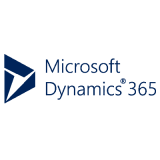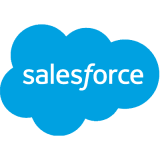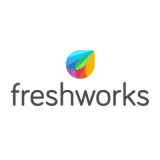In today’s competitive business environment, customer relationship management (CRM) software is an essential tool for staying ahead of the competition. CRM software helps businesses to better manage their relationships with customers, providing a comprehensive view of each customer’s history and interactions. It also helps companies gain insights into customer behavior, allowing them to identify opportunities for increased sales and improved service.
With its powerful features and capabilities, CRM software can help businesses increase revenue, improve efficiency and maximize profits. When selecting the best CRM for your organization, it’s essential to understand CRM software’s functionality and how it can help improve your company’s marketing and sales operations. Read on to learn the benefits of CRM software and how to choose the right solution for your company.
What Is CRM Software?
CRM software helps business owners and organizations manage their interactions with potential and existing customers. It stores customer data, such as contact information, lifecycle stage, purchase history, what services customers are interested in, promotions or messages they have engaged with, emails they opened or clicked on, and more. This data can then inform marketing decisions and create personalized customer experiences.
The ultimate goal of CRM software is to improve customer relationships by providing a better understanding of the customer journey. By understanding what works best with customers – which channels are most effective for engagement – businesses can create more tailored campaigns that will be better received. This not only boosts the effectiveness of campaigns but also helps increase overall customer satisfaction levels.
CRM software is often part of a tech stack that enables sales and marketing teams to access one source of truth about customers. It provides valuable insights into sales and lead-generation strategies so businesses can make informed decisions about the best-performing marketing channels. Additionally, since CRM software often includes features like automated emails and reminders and tracking capabilities like progress notes/reports on sales activities, it can help streamline sales processes.
What Are The Criteria For Selecting The Right CRM Software?
When selecting CRM software, there are many criteria to consider. It’s important to carefully evaluate the product and determine if it meets the needs of your business – and how well it might integrate with existing systems. Here are some criteria to take into account when evaluating CRM software:
Compatibility
The software must be compatible with other IT systems you already use, such as billing, sales enablement, CPQ, marketing automation, and customer service applications. It should also be able to share data with other enterprise applications easily.
Functionality
While a basic CRM system can provide contact management, sales pipeline tracking and reporting, more robust solutions may offer additional capabilities such as lead scoring, social media integration and analytics. Consider what features meet your business requirements now – and in the future.
User-friendliness
Look for an intuitive interface that’s easy for users to learn quickly – without having to go through multiple training sessions or tutorials. In addition, it should be mobile-friendly so sales reps can access the software from any device or location.
Scaleability
Your CRM solution should grow along with your business needs, so consider how easily the system can be scaled up or down. It should also have powerful automation capabilities which enable you to manage customer relationships through each lifecycle stage more effectively.
Security
Ensure that all data is secure by looking for security features like role-based access control, two-factor authentication and encryption technology that protects information from unauthorized access or malicious attacks.
Cost
Don’t forget about cost when evaluating potential CRM solutions, as there is often significant variability between software pricing models (e.g., monthly subscription fee vs. pay-as-you-go). Make sure you factor in both short-term costs (e.g., set up fee) and long-term costs (e.g., recurring fees) associated with each option before deciding which is suitable for your organization’s budget and timeline constraints.
Customer Support
How well does the provider support their customers? For example, does the vendor offer online support options such as community forums, webinars, or live chat? Are they willing to answer questions quickly via email or phone? Do they have an emergency hotline available if an issue arises that needs immediate attention? All of these factors should be considered before purchasing a software solution.
Choosing the right CRM for your organization requires careful evaluation of criteria such as those mentioned above to ensure it meets current needs – while also considering future growth requirements.
Is CRM right for your organization? Let’s take a look at the benefits of implementing CRM software.
What are the Benefits of Implementing CRM?
Businesses use CRM software to effectively manage customer relationships, maximize sales opportunities, and build stronger customer loyalty. Additionally, tracking customer interactions across multiple channels allows enterprises to gain valuable insights into how customers interact with their products or services. This information can then be used to improve marketing strategies and tailor offerings based on individual preferences.
Benefits include:
- One source of truth on customers: Streamlined access to important customer information from a single platform.
- Improved customer service: With CRM software, businesses can provide better customer service by tracking customer preferences and interactions with the company.
- Increased sales efficiency: CRM software enables businesses to manage their sales processes more efficiently and accurately track leads, customers, opportunities, and deals.
- More effective marketing campaigns: By tracking past interactions and measuring results, businesses can create more effective marketing campaigns tailored to specific target audiences.
- Enhanced collaboration among teams: CRM software facilitates collaborations between departments such as sales, marketing, revenue operations, and customer success, allowing them to work together in a streamlined manner for improved productivity.
- Lead generation and conversion: Generate more leads and turn them into customers through automated outreach and follow-ups.
- Data accessibility from any location: CRM solutions are cloud-based so that users can access data from any location with an internet connection.
- Higher profits: CRM software reduces costs associated with manual sales and customer service operations.
FAQs
What does a CRM do?
CRMs are designed to help businesses create strong relationships with their customers through a variety of methods. For example, a CRM can generate targeted emails for specific customer groups, allowing for personalized communication that builds rapport with customers. Additionally, CRMs provide tools for managing customer data such as contact information, past purchases, and other relevant personal data. By storing this information in one centralized database, it’s easier to keep track of customers and ensure they receive personalized communications that address their needs.
What are the major types of CRM?
The major CRM types include operational, analytical, collaborative, and strategic CRM. Operational CRM focuses on customer-facing transactions such as order processing, service requests, and sales activities. Analytical CRM involves data analysis to identify trends in customer behavior and preferences. Collaborative CRM is used to provide customers with self-service access to products and services and facilitate cross-team collaboration for complex problems. Finally, strategic CRM focuses on understanding customer needs to develop tailored strategies and insights that can help drive customer loyalty.
Each type of CRM serves a different purpose in the customer relationship management process, and all are essential to an effective strategy. By understanding the types of CRM, businesses can leverage the benefits of each type to create an efficient and effective customer relationship management system.
What are examples of CRM?
Common examples of CRM solutions include sales automation, contact management, marketing automation, and customer service management.
Sales automation is one of the most widely used CRM solutions. It helps organizations manage their sales process by automating tasks such as tracking leads, managing customer accounts, and analyzing sales performance.
Contact management is a powerful tool for managing your customer relationships. This can include storing profiles of customers and prospects, organizing contact information, creating targeted campaigns, and providing insights into customer behavior.
Marketing automation automates marketing activities, such as email campaigns and lead nurturing. It helps organizations measure their campaigns’ effectiveness and track customer responses over time.
Customer service management is another important part of any CRM initiative. This includes tools for managing customer inquiries, providing support services, automating customer feedback management, and measuring customer satisfaction. By using these tools, businesses can ensure that they offer the best possible service to their customers.
What businesses use CRM systems?
CRMs are mainly used by sales, customer service, marketing, and product teams to improve the customer experience. Sales teams use CRM systems to track leads to build relationships with potential customers easily. Customer service teams use CRMs to track support issues so they can respond quickly and accurately. Marketing teams also use CRMs to analyze customer data to create targeted campaigns that generate leads. Product teams rely on CRM systems for up-to-date product information to make informed decisions about product features or improvements. Finally, IT departments leverage CRMs for integration with other business systems such as accounting or ERP solutions.
Many industries benefit from using a CRM system, including retail, banking and finance, telecommunications, healthcare, media & entertainment, hospitality & travel, and non-profits. For example, retail companies can customize their products according to customer preferences by analyzing customer data collected through their CRM system. Banks can quickly identify fraudulent activities by tracking large transaction volumes through their CRM system. Telecommunications providers can target potential customers whose contracts with competitors are about to expire by segmenting customers likely to switch providers based on data collected through their CRM system.
Who can benefit from CRM?
Businesses of all sizes across multiple industries stand to gain by investing in CRM software or services as it provides valuable opportunities for strengthening relationships with current customers while helping reach potential new ones. In addition, investing in CRM tools gives companies the competitive edge they need to succeed in today’s ever-changing marketplaces, where consumer preferences and trends evolve rapidly, making it vital for businesses to stay up-to-date on consumer behavior if they want to remain long-term.




